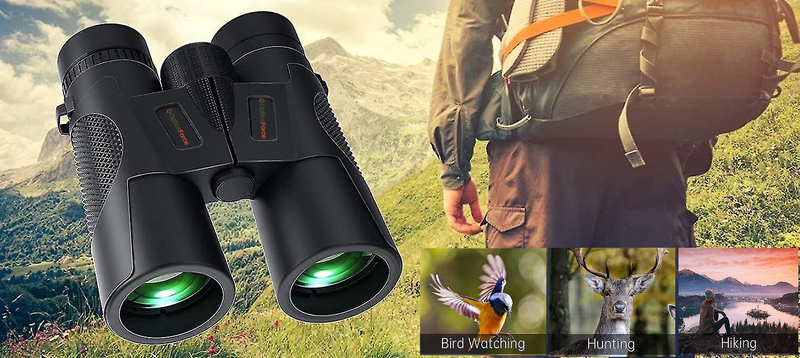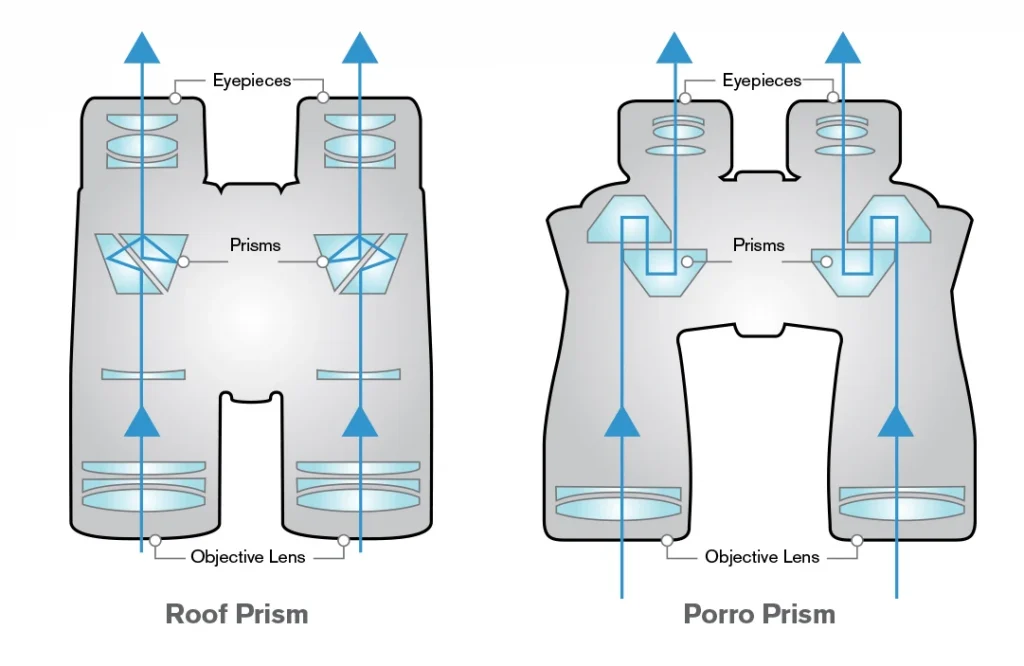Understanding the Modern Technology Behind Modern Binoculars for Sharp Views
Understanding the Modern Technology Behind Modern Binoculars for Sharp Views
Blog Article
The Significance of Field Glasses in Education and Scientific Research Study: Just How These Optical Instruments Add To Learning and Exploration
The combination of field glasses into academic setups and clinical study is commonly forgotten, yet their contribution to enhancing empirical skills is substantial. In disciplines varying from ecological scientific research to astronomy, binoculars offer as important tools that promote query and essential thinking.
Enhancing Observational Skills
In instructional and study setups, the use of field glasses considerably boosts empirical skills amongst students and specialists alike. These optical instruments promote a much deeper understanding of distant topics, allowing individuals to observe details that would otherwise continue to be undetected. By using field glasses, learners can take a look at wild animals, expensive phenomena, and geological formations, fostering a more profound link to the subject.
Field glasses work as important devices in field research studies, urging trainees to engage proactively with their setting. Through enhanced monitoring, they can collect data more effectively, leading to improved analytical skills. This hands-on experience permits the development of crucial reasoning, as pupils must analyze what they see and relate it to academic understanding.

Bridging Concept and Practice
Observational skills established via using field glasses normally bring about a more profound assimilation of academic knowledge with functional application. By participating in straight observation, learners can change abstract concepts right into concrete experiences. This synergy promotes a much deeper understanding of scientific concepts as trainees connect theoretical frameworks with real-world phenomena.
For example, when examining avian biology, trainees can apply their understanding of bird composition and actions with the lens of field glasses, observing attributes such as plumage variant, feeding routines, and migratory patterns. This straight interaction not only reinforces theoretical ideas yet additionally grows critical thinking and logical abilities.
Additionally, making use of field glasses encourages learners to create theories based on their monitorings, thereby improving their scientific query abilities. They can proactively check these theories in the area, leading to an extra experiential understanding setting that promotes curiosity and exploration.
Essentially, field glasses offer as a vital device in connecting the gap between class understanding and fieldwork - Binoculars. They equip trainees to become energetic individuals in their education and learning, encouraging a holistic method to comprehending the environment and its complexities. Thus, the combination of concept and practice is vital for promoting educated and engaged students
Applications in Environmental Science
Using binoculars in environmental scientific research improves the capacity to observe and evaluate ecosystems with higher accuracy. These optical instruments are essential for carrying out field research studies, making it possible for researchers to check wildlife populaces, evaluate plant her response wellness, and assess environment conditions without disrupting the native environment. Field glasses facilitate the recognition of species at different distances, enabling researchers to gather important data on biodiversity and actions.
In environmental study, binoculars are important devices for ornithologists studying avian behavior and movement patterns. They allow scientists to tape-record observations over long periods, adding to valuable longitudinal researches - Binoculars. Furthermore, field glasses play a crucial role in habitat assessments, as they permit the comprehensive monitoring of plant neighborhoods and their communications within environments
Environmental teachers additionally gain from field glasses, as these tools enhance experiential understanding possibilities. Pupils can engage directly with their environments, cultivating a deeper admiration for eco-friendly systems. By including field glasses right into educational programs, instructors can motivate the following generation of environmental scientists.
Role in Astronomy Education And Learning
The use of binoculars in astronomy education and learning supplies an obtainable gateway for trainees and lovers to discover celestial sensations (Binoculars). Unlike huge telescopes, binoculars are portable, straightforward, and reasonably economical, making them a perfect introductory tool for observing the night skies. Students can quickly involve with the cosmos, promoting a hands-on discovering experience that improves their understanding of huge principles
Field glasses enable individuals to observe a range of holy items, including the Moon, earths, and galaxy. This accessibility encourages expedition and observation, crucial components of clinical inquiry. Students can establish crucial skills such as information collection, monitoring strategies, and also basic astrometry. Notably, field glasses act as a bridge to a lot more complex expensive instruments, providing fundamental experiences that can spark deeper interest in the field.
In instructional setups, directed binocular sessions can advertise team collaboration and conversation, improving the finding out experience. The shared experience of observing holy bodies can grow a feeling of neighborhood amongst students. On the whole, field glasses play an essential role in debunking astronomy, making it approachable and appealing for people in all best site levels of education.

Inspiring Inquisitiveness and Inquiry
Field glasses not just assist in the monitoring of holy phenomena but additionally spark a feeling of curiosity and questions amongst pupils. By supplying a more detailed look at distant things, binoculars urge learners to ask concerns and explore the environment around them. This device changes passive discovering right into an energetic, engaging experience, fostering a deeper understanding of clinical principles.
When pupils utilize binoculars to observe wildlife, landscapes, or huge items, they create empirical skills that are important for clinical questions. The act of concentrating on specific details triggers them to create hypotheses, perform examinations, and draw final thoughts based upon their monitorings. This process not only improves their important assuming abilities but likewise supports a long-lasting interest for expedition.
Furthermore, binoculars can connect the void between theoretical knowledge and real-world application. As students observe phenomena firsthand, they can connect classroom learning to useful experiences, making education and learning great site a lot more appropriate and purposeful. Eventually, making use of binoculars in academic setups acts as a catalyst for interest, equipping pupils to pursue understanding with interest and cultivating a feeling of marvel concerning the globe around them. In this means, binoculars play an important function in motivating future generations of researchers and thinkers.
Final Thought
In summary, field glasses function as necessary devices in education and scientific research study, significantly enhancing observational abilities while linking the space between academic understanding and sensible application. Their diverse applications in areas such as environmental scientific research and astronomy underscore their relevance in promoting inquisitiveness and query amongst trainees. By helping with thorough examinations of distant topics, binoculars not only motivate the future generation of scientists yet also cultivate an extensive appreciation for exploration and the clinical method.
Report this page